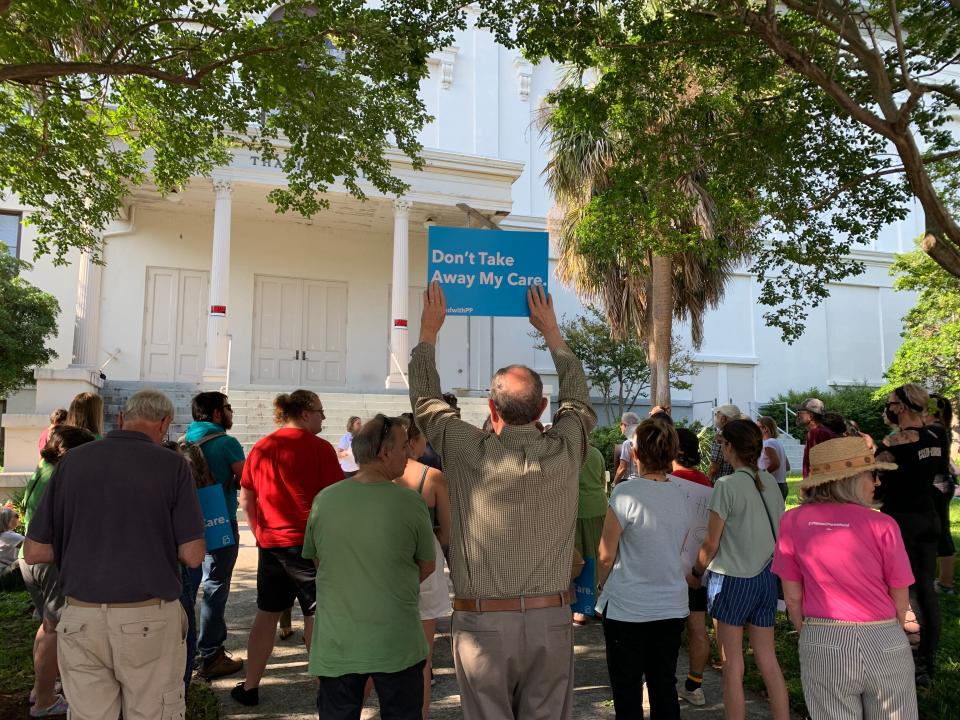What if every abortion was born? How abortion ruling could impact North Carolina foster care
As the nation faces the overturning of Roe v. Wade, an already stressed child welfare system is bracing for impact.
Across North Carolina during the 2020-21 fiscal year, 4,544 children entered the care of Child Welfare Custody, according to the UNC School of Social Work. Of those 38% went to foster care, with most of the children still in the system.
The National Foster Youth Institute says the current strain on the foster care system is evident. The Institute adds that while adoption has long been championed as a positive alternative to abortion, the lifelong effects the foster care system has on children are bleak.
Related news: With no Roe, what's next for the anti-abortion movement in North Carolina?
Across the country, foster care advocates and experts agree that systems are overwhelmed by the number of children in their care.
In some states, children are bedding down in hotels. In others, they are cycled from bed to bed in temporary homes, leaving them with little sense of stability. While adoption is an option, the Institute estimates as many as one in four adoptions fail, in which an adoptive family returns a child to the foster care system.
Locally, the New Hanover County Department of Health and Human Services serves around 300 children and teenagers through its foster care system.

The department has hired additional social workers to alleviate caseloads and ensure quality care for children, according to an emailed statement from Brian Bocnuk, the department's permanency planning manager.
However, the department is always seeking more foster families who can provide a stable and consistent home until a child is adopted or reunited with their family.
PHOTOS: Abortion rights rally in Wilmington
Between July 2020 and June 2021, New Hanover County had 169 children enter the care of Child Welfare Custody.
More than a quarter were placed in foster care, and more than half were still in the system after a year.
On average, children spend two years in the foster care system throughout the US.
Abortion's impact on care
Experts also say anti-abortion legislation shows negative effects on the foster care system.
A 2008 Duke University study showed that in the years after Roe was passed, regions with more restrictive anti-abortion legislation, like parental consent laws, for instance, resulted in more children born into families who could not care for them.
Another more recent study from 2017 found that while most people would choose to attempt to raise their child if they did not have access to abortion, an estimated 9% would put their child up for adoption.
Roughly translated, that means that if the 29,500 abortions performed in North Carolina in 2017 were carried to term, an estimated 2,600 additional children would be placed for adoption that year. Those figures come from the Guttmacher Institute, an abortion-rights research organization that was once part of Planned Parenthood.
Foster care is also far from an ideal situation for any child, the National Foster Child Institute says. People who spend time in the foster care system frequently experience long-term effects. Only 55% graduate from high school, around half experience homelessness, and 30% have higher rates of post-traumatic stress disorder, according to the National Foster Youth Institute.
Additionally, fostered youth are more likely to be sex trafficked. They experience teen pregnancy at twice the rate of the general population, according to the Institute, creating a cycle of children likely to enter the foster care system.
Despite the Roe decision released last week, abortion is still legal in North Carolina.
Political pundits say it is unlikely the General Assembly will consider making a ruling on abortion rights in the state during its short session because Democratic Gov. Roy Cooper would likely veto the ruling, and Republicans do not have a supermajority to overturn a veto from the governor.
In the Port City New Hanover County Health and Human Services are reminding the population that "[the county] is committed to providing public health services including reproductive health care," according to an emailed statement.
The services, including counseling, contraceptive devices, and family planning, are provided on a sliding payment scale and are available to anyone in need.
"New Hanover County Health and Human Services' mission is to provide services and support that promote self-reliance, prevent adverse experiences and protect the community," the statement said. "A component of public health has been, and will continue to be reproductive health services."
Reporter Sydney Hoover can be reached at 910-343-2339 or shoover@gannett.com.
This article originally appeared on Wilmington StarNews: How abortion ruling could impact North Carolina foster care system

